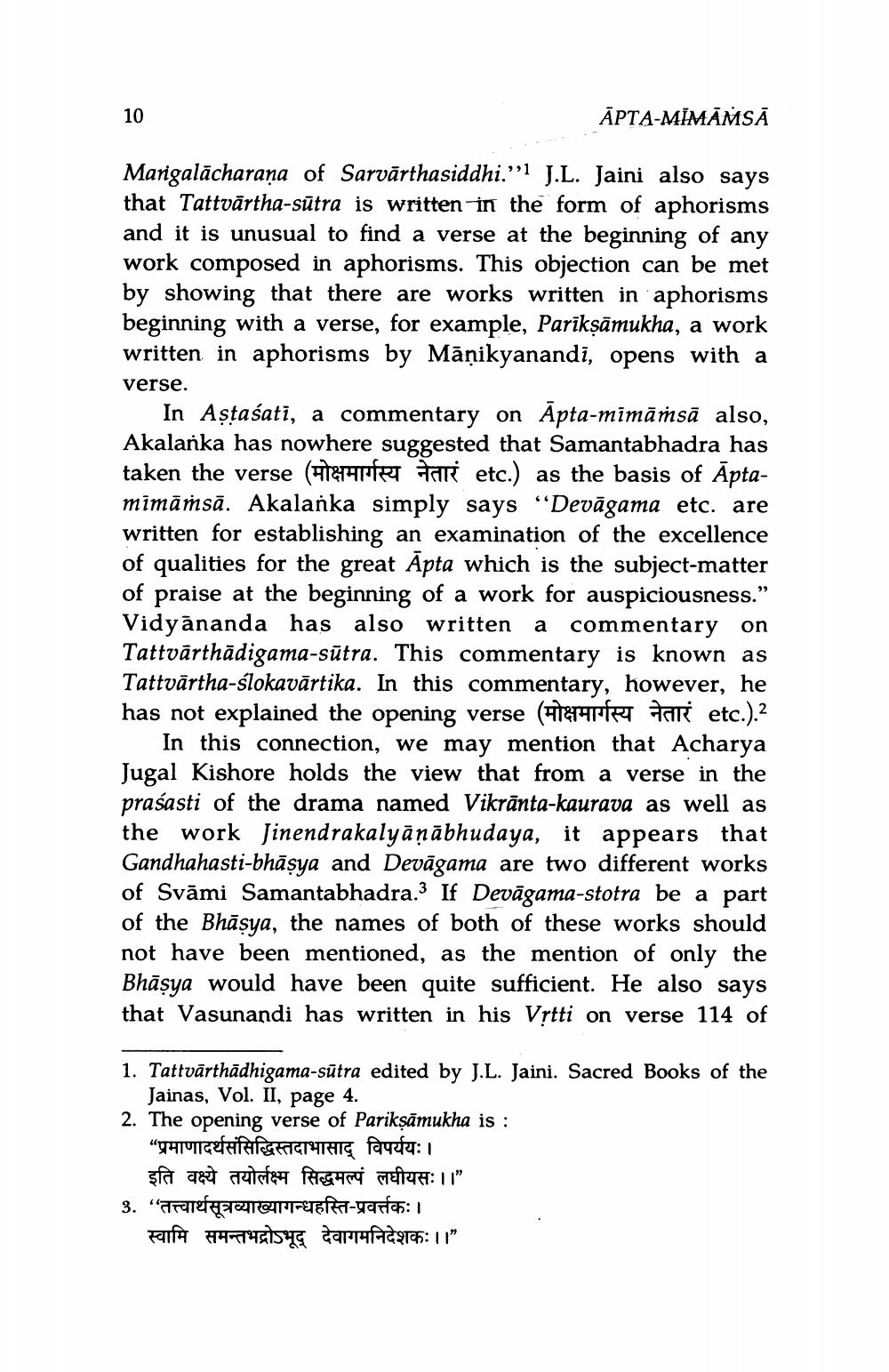________________
ĀPTA-MĪMĀSĀ
Margalācharaņa of Sarvārthasiddhi.”'l J.L. Jaini also says that Tattvārtha-sūtra is written in the form of aphorisms and it is unusual to find a verse at the beginning of any work composed in aphorisms. This objection can be met by showing that there are works written in aphorisms beginning with a verse, for example, Parīkņāmukha, a work written in aphorisms by Māņikyanandi, opens with a verse.
In Astašati, a commentary on Apta-mimāṁsā also, Akalarka has nowhere suggested that Samantabhadra has taken the verse (Herrer Har etc.) as the basis of Āptamimāṁsā. Akalanka simply says “Devāgama etc. are written for establishing an examination of the excellence of qualities for the great Apta which is the subject-matter of praise at the beginning of a work for auspiciousness." Vidyānanda has also written a commentary on Tattvārthādigama-sūtra. This commentary is known as Tattvārtha-slokavārtika. In this commentary, however, he has not explained the opening verse (H14rper fari etc.).?
In this connection, we may mention that Acharya Jugal Kishore holds the view that from a verse in the praśasti of the drama named Vikrānta-kaurava as well as the work Jinendrakalyāņābhudaya, it appears that Gandhahasti-bhāşya and Devāgama are two different works of Svāmi Samantabhadra.3 If Devāgama-stotra be a part of the Bhāsya, the names of both of these works should not have been mentioned, as the mention of only the Bhāşya would have been quite sufficient. He also says that Vasunandi has written in his Vrtti on verse 114 of
1. Tattvārthādhigama-sūtra edited by J.L. Jaini. Sacred Books of the
Jainas, Vol. II, page 4. 2. The opening verse of Parikṣāmukha is :
“प्रमाणादर्थसंसिद्धिस्तदाभासाद् विपर्ययः ।
इति वक्ष्ये तयोर्लक्ष्म सिद्धमल्पं लघीयसः ।।" 3. "Trarefasteiermeef-warta: 1
स्वामि समन्तभद्रोऽभूद् देवागमनिदेशकः ।।"




